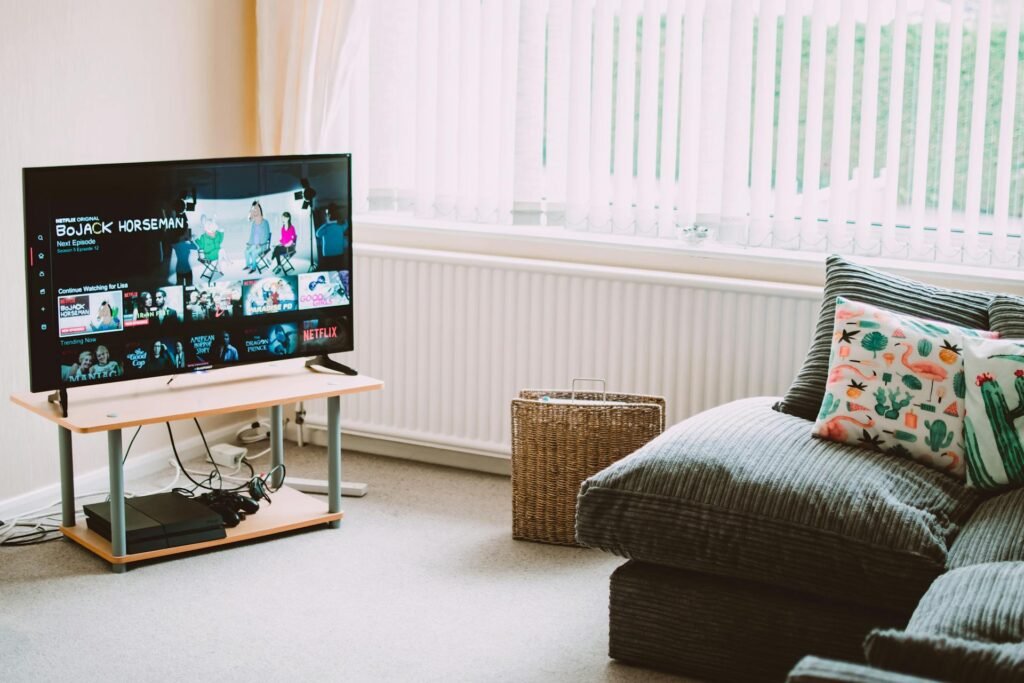IPTV in Morocco : In recent years, Internet Protocol Television (IPTV) has emerged as a transformative force in the global entertainment landscape, and Morocco is no exception. As Moroccan viewers seek more flexible and diverse television options, IPTV has gained significant traction, offering a compelling alternative to traditional satellite and cable TV services. This article explores the growth of IPTV in Morocco, its benefits, challenges, and the potential it holds for the future.
Thank you for reading this post, don't forget to subscribe!What is IPTV?
IPTV stands for Internet Protocol Television, a digital television broadcasting protocol that delivers television content over the internet. Unlike traditional television formats that rely on satellite or cable connections, IPTV uses internet-based networks to stream media directly to the user’s device. This allows for greater flexibility, on-demand viewing, and an interactive television experience.
The Growth of IPTV in Morocco
The rise of IPTV in Morocco is closely linked to the country’s increasing internet penetration and the growing demand for more diverse and personalized content. According to recent statistics, over 74% of the Moroccan population had internet access by the end of 2023. This widespread connectivity has provided a fertile ground for IPTV services to flourish.
Several local and international IPTV providers have entered the Moroccan market, offering a variety of packages that cater to different tastes and preferences. These services often include a mix of local channels, international networks, movies, sports, and specialized content, appealing to a broad audience base.
Benefits of IPTV for Moroccan Viewers
- Variety of Content: IPTV offers an extensive range of channels and on-demand content, from local Moroccan channels to international networks. This variety ensures that viewers have access to a wide array of programming, including news, entertainment, sports, and educational content.
- Flexibility and Convenience: With IPTV, viewers are no longer tied to a fixed schedule. They can watch their favorite shows and movies whenever they want, pause, rewind, or fast-forward as needed. This on-demand capability aligns well with the busy lifestyles of modern viewers.
- Cost-Effective Options: IPTV services often come with competitive pricing and customizable packages. Viewers can choose from basic plans to premium packages with additional features, making it easier to find a plan that fits their budget.
- Interactive Features: IPTV provides interactive features such as live chat, social media integration, and real-time feedback, enhancing the overall viewing experience. These features allow viewers to engage more deeply with the content and connect with other viewers.
Challenges Facing IPTV in Morocco
Despite its many advantages, the growth of IPTV in Morocco is not without challenges. Some of the key issues include:
- Internet Quality and Reliability: The quality of IPTV services heavily depends on the reliability and speed of the internet connection. In areas with poor internet infrastructure, viewers may experience buffering, lag, or interruptions, which can detract from the viewing experience.
- Regulatory and Legal Issues: The regulatory environment for IPTV in Morocco is still evolving. Ensuring compliance with local broadcasting regulations and intellectual property laws is crucial for IPTV providers. Unauthorized IPTV services, or “pirate” IPTV, also pose a significant challenge, undermining legitimate businesses.
- Awareness and Adoption: While IPTV is growing, there is still a segment of the population that is unaware of its benefits or hesitant to adopt new technology. Continued education and marketing efforts are needed to increase awareness and encourage adoption.
The Future of IPTV in Morocco
The future of IPTV in Morocco looks promising, driven by technological advancements and changing consumer preferences. As internet infrastructure continues to improve and more viewers recognize the benefits of IPTV, its adoption is expected to rise steadily.
Innovation will play a key role in this growth. Enhanced user interfaces, integration with smart home devices, and the development of localized content are likely to attract more subscribers. Additionally, strategic partnerships between IPTV providers and telecom companies can further expand the reach and reliability of these services.
In conclusion, IPTV is reshaping the television landscape in Morocco, offering viewers greater choice, convenience, and control over their viewing experiences. While challenges remain, the continued evolution of technology and infrastructure promises to overcome these hurdles, making IPTV an integral part of Morocco’s digital future.
Technological Advancements and Their Impact on IPTV
As IPTV continues to gain momentum in Morocco, several technological advancements are poised to further enhance the viewer experience and broaden the appeal of IPTV services. These advancements include:
- 5G Connectivity: The rollout of 5G networks in Morocco promises to revolutionize IPTV by providing faster, more reliable internet connections. With 5G, viewers can enjoy high-definition and 4K content with minimal buffering and latency issues, even in areas with previously limited connectivity.
- Artificial Intelligence and Machine Learning: AI and machine learning algorithms are being integrated into IPTV platforms to offer personalized recommendations and content curation. These technologies analyze viewing habits and preferences to suggest relevant shows and movies, creating a more tailored and engaging experience for users.
- Cloud-Based Services: Cloud technology enables IPTV providers to offer more robust and scalable services. Cloud-based solutions facilitate seamless streaming, reduce downtime, and allow for the efficient storage and retrieval of vast amounts of content. This ensures that users have access to a wide library of on-demand content without the limitations of local storage.
- Enhanced User Interfaces: Modern IPTV services are focusing on user-friendly interfaces that enhance navigation and accessibility. Features such as voice control, advanced search functions, and intuitive menus make it easier for viewers to find and enjoy content.
- Integration with Smart Devices: As smart homes become more prevalent, IPTV services are increasingly integrating with smart TVs, voice assistants, and other connected devices. This integration allows for a more cohesive and convenient entertainment ecosystem, where viewers can control their IPTV services using a variety of devices.
IPTV and Content Creation in Morocco
The rise of IPTV also presents significant opportunities for content creators in Morocco. Local filmmakers, producers, and artists can leverage IPTV platforms to distribute their work to a broader audience. This democratization of content distribution can help to promote Moroccan culture, stories, and talent on both a national and international stage.
Moreover, IPTV platforms can offer niche content that might not find a place on traditional TV networks. This includes specialized programming, educational content, and regional news, catering to diverse audience segments with specific interests.
The Role of Government and Industry Stakeholders
To fully realize the potential of IPTV in Morocco, collaboration between government bodies, industry stakeholders, and service providers is essential. Key areas of focus include:
- Regulatory Framework: Establishing a clear and supportive regulatory framework that addresses issues such as licensing, content rights, and consumer protection is crucial. This will help to create a fair and competitive market while safeguarding the interests of both providers and viewers.
- Infrastructure Development: Continued investment in internet infrastructure, particularly in rural and underserved areas, is necessary to ensure that all Moroccans can benefit from IPTV services. Public-private partnerships can play a vital role in accelerating these developments.
- Consumer Education: Raising awareness about the benefits of IPTV and how to access these services is important for driving adoption. Educational campaigns and outreach programs can help to demystify IPTV technology and highlight its advantages over traditional TV.
Conclusion
IPTV is set to transform the television landscape in Morocco, offering unprecedented flexibility, variety, and quality to viewers. As technological advancements continue to enhance IPTV services and infrastructure improves, the adoption of IPTV is expected to grow, making it a cornerstone of Morocco’s digital future.
The success of IPTV in Morocco will depend on the collaborative efforts of government authorities, industry players, and content creators. By fostering a supportive environment and embracing innovation, Morocco can harness the full potential of IPTV, enriching the viewing experience for its citizens and showcasing Moroccan culture to the world.
As the IPTV market evolves, it will undoubtedly bring new opportunities and challenges. However, with the right strategies and a commitment to progress, IPTV can pave the way for a more connected, informed, and entertained Moroccan society.



